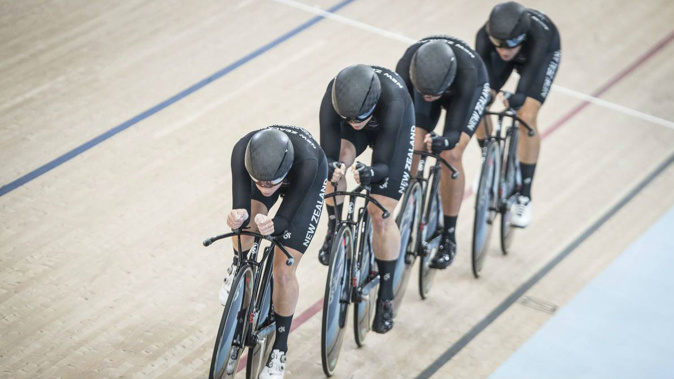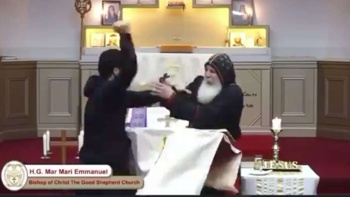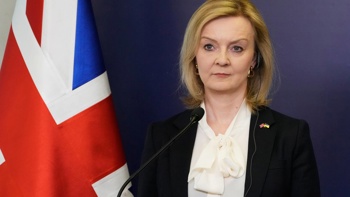
Cycling New Zealand has tumbled from its pedals with the release of the Heron Report reviewing the organisation's culture.
The investigation, led by Michael Heron QC, highlights "bullying", "an absence of accountability" and "sub-optimal leadership" as reasons for shortcomings within the sport.
Underlying that is a conclusion the high performance system requires scrutiny as to whether it protects the welfare of athletes, coaches and staff.
Former track coach Anthony Peden comes in for criticism. Heron was satisfied Peden had behaved in a manner prohibited by the CNZ code of conduct and was involved in an undisclosed, and therefore inappropriate, relationship with a female athlete in the programme.
Heron specified that one incident on July 17, 2016, involving a night out in Bordeaux before the Rio Olympics, stood out among many of the more than 70 interviewees.
At approximately 2.30am, after alarms had been raised and a search party had been organised, a coach and athlete returned to the team hotel intoxicated. A witness at the hotel describes seeing an intimate moment between them. The female athlete was described as vomiting for the rest of the night.
High performance director Mark Elliott flew to Bordeaux to conduct an investigation. He determined a written warning was appropriate, together with formal medical and professional support for Peden.
The team manager at the time expressed her concern to Elliott that if the incident were to go "unacted on" it would continue to be a risk to the team.
Heron concluded the incident created disharmony throughout the team, and that sent a ripple effect through the group until the Games when they delivered one medal, a silver to the Peden-coached team sprint.
However, Heron wrote that there was no "drinking culture" in the programme, save for a small group of individuals, including the coach.
Peden, through his lawyer Lisa Hansen, sent a response to the report, tabled as Appendix E. He labelled it "grossly inaccurate in many respects, and based on unreliable and inaccurate evidence".
Peden, via his lawyer, wrote that it was "unsurprising given that the evidence obtained and relied on is predominantly second and third hand, and includes conjecture, perception, conjecture-on-conjecture, anecdote, hearsay, gossip and rumour"
The letter said Peden declined to critique the many errors in the report.
Heron concluded there was a lack of accountability and leadership throughout the CNZ operation and a reluctance to raise issues, which led to a lack of reliable evidence.
One school of thought suggests CNZ chief executive Andrew Matheson was in a difficult position when faced with allegations about Peden.
He could not act on anonymous testimony in the wake of the Rio Games. It took until May this year before anyone was prepared to publicly state their case.
High Performance Sport New Zealand also gets a serve for their lack of action, despite sufficient knowledge of the issues at hand.
Heron concluded that they knew enough of the situation before the news broke in May to have assisted. He said HPSNZ placed too much trust in CNZ to resolve the situation.
Crucially, he wrote the leak of confidential information to the media came from a person who had access to Peden's house. That, in turn, had been provided to the coach in error by a HPSNZ employee. CNZ was not informed or aware of this.
Peden had received identifiable documentation of athletes' Rio Olympic reviews via HPSNZ. These were meant to be conducted in confidence with HPSNZ employees Hamish Carter, Eddie Kohlhase and Paul Smith, and collated anonymously.
Heron made 11 recommendations, including the need to address the welfare of athletes, coaches and staff through a safeguarding policy. He wrote that consideration should be given to whether the existing funding model gives sufficient priority to that. The taxpayer will invest $4.4 million in CNZ via HPSNZ this year.
The report suggested policies and practices of CNZ and HPSNZ in respect to coach-athlete intimate relationships and the issue of alcohol be reviewed and clarified if necessary.
CNZ and HPSNZ issued separate mea culpas.
A CNZ statement said the board welcomes and accepts the findings, and has already begun dialogue with athletes to establish an open and honest environment and ensure such circumstances do not arise again.
HPSNZ chief executive Michael Scott said he would commit to the recommendations, as he promised in June.
Take your Radio, Podcasts and Music with you








